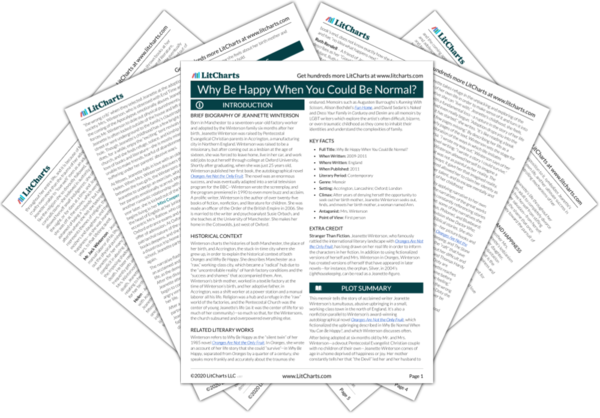AI ToolsNew
Tools to make learning and teaching easier
|
Previous
Chapter 6
|
Why Be Happy When You Could Be Normal?: Chapter 7 Summary & Analysis |
Next
Chapter 8
|


Upgrade to unlock the analysis and theme tracking for all of Why Be Happy?Why Be Happy When You Could Be Normal?!
Get LitCharts A+